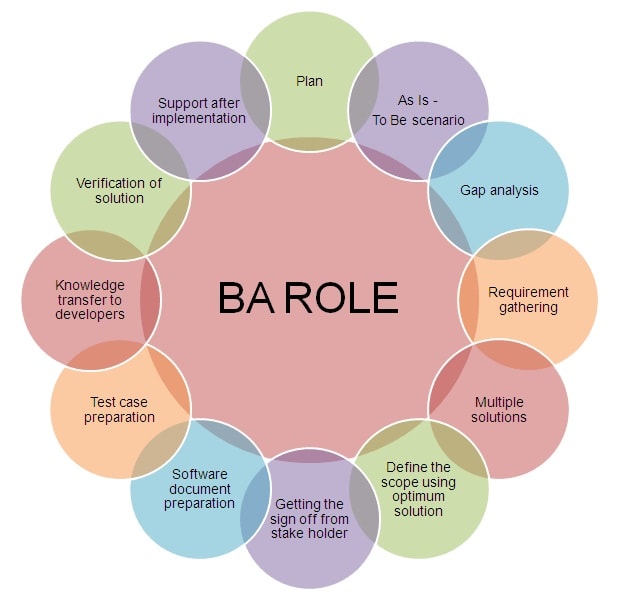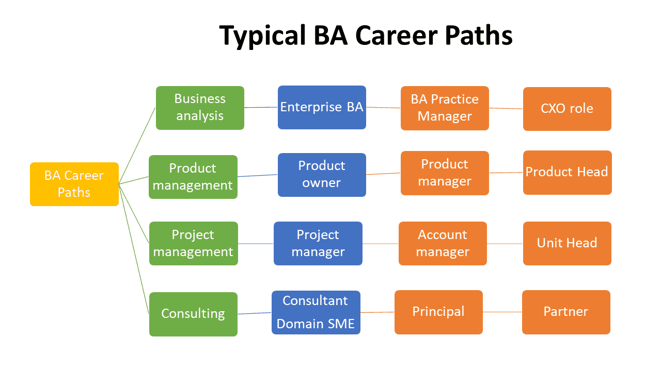The Evolving Landscape of Business Analysis
In today’s rapidly transforming business environment, the role of a Business Analyst has become increasingly critical. Organizations across industries are seeking professionals who can translate complex business needs into strategic solutions, making Business Analyst courses a gateway to a dynamic and impactful career.
The Strategic Importance of Business Analysis
According to the Project Management Institute’s 2024 Talent Gap Report, businesses are experiencing an unprecedented demand for professionals who can:
- Interpret complex data
- Drive strategic decision-making
- Bridge technological and business domains
- Implement innovative solutions
What Defines a Modern Business Analyst?
A Business Analyst is a strategic problem solver who:
- Analyzes organizational structures
- Identifies business opportunities
- Recommends technological solutions
- Facilitates communication between stakeholders
- Drives operational efficiency

Image Source: BuzzAnalysis
The Comprehensive Scope of Business Analyst Courses
Core Skill Development
Effective Business Analyst courses typically encompass:
- Analytical Skills
- Data interpretation
- Statistical analysis
- Predictive modeling
- Critical thinking
- Technical Competencies
- Business intelligence tools
- Database management
- Process modeling software
- Advanced spreadsheet techniques
- Strategic Capabilities
- Requirements engineering
- Project management fundamentals
- Change management
- Strategic planning
Market Demand and Career Potential
Professional Landscape
Industry statistics highlight the robust opportunities for Business Analysts:
- Average Annual Salary (2024): $92,000 – $125,000
- Projected Job Growth (2024-2030): 14% (Significantly faster than average)
- Industries with Highest Demand:
- Technology
- Finance
- Healthcare
- Consulting
- E-commerce
Technological Proficiency in Business Analysis
Essential Tools and Technologies
Modern Business Analyst courses emphasize proficiency in:
- Microsoft Power BI
- Tableau
- SQL
- Python
- Advanced Excel
- SAP
- Salesforce
- Machine Learning fundamentals
Emerging Technological Trends
- Artificial Intelligence integration
- Predictive analytics
- Blockchain understanding
- Cloud computing fundamentals
- Internet of Things (IoT) implications
Certification and Professional Development
Recognized Certifications
- ECBA (Entry Certificate in Business Analysis)
- CBAP (Certified Business Analysis Professional)
- PMI-PBA (Professional in Business Analysis)
- IREB Certified Professional for Requirements Engineering
Learning Pathways
- University-affiliated programs
- Online certification courses
- Professional workshop series
- Comprehensive bootcamp experiences
- Specialized industry-focused training

Image Source: AdaptiveUS
Practical Application and Real-World Scenarios
Industry-Specific Use Cases
- Healthcare: Patient Care Optimization
- Finance: Risk Management Strategies
- Retail: Customer Experience Enhancement
- Manufacturing: Supply Chain Efficiency
- Technology: Product Development Cycles
Professional Skill Matrix
Hard Skills
- Data visualization
- Requirements gathering
- Process mapping
- Financial modeling
- Performance analysis
Soft Skills
- Communication
- Stakeholder management
- Problem-solving
- Adaptability
- Strategic thinking
Career Progression Opportunities
Potential Career Trajectories
- Junior Business Analyst
- Senior Business Analyst
- Business Architecture Specialist
- Digital Transformation Consultant
- Strategy Manager
- Chief Innovation Officer
Salary Progression
- Entry Level: $65,000 – $85,000
- Mid-Career: $90,000 – $120,000
- Senior Level: $130,000 – $170,000
Challenges and Considerations
Professional Development Insights
- Continuous learning requirement
- Technological adaptation
- Complex certification processes
- Interdisciplinary skill development
Economic and Organizational Impact
Individual Career Benefits
- 92% report significant career advancement
- 40% average salary increment post-certification
- Enhanced global job marketability
Organizational Advantages
- Improved strategic decision-making
- Reduced operational inefficiencies
- Enhanced technological integration
- Data-driven innovation acceleration
Conclusion: A Strategic Career Investment
Business Analyst courses represent more than a professional qualification—they are a strategic pathway to understanding and shaping organizational success. As businesses navigate increasingly complex global landscapes, Business Analysts emerge as critical architects of strategic transformation.
Note to Reader: Exploring comprehensive Business Analyst course? Check Our Offer




